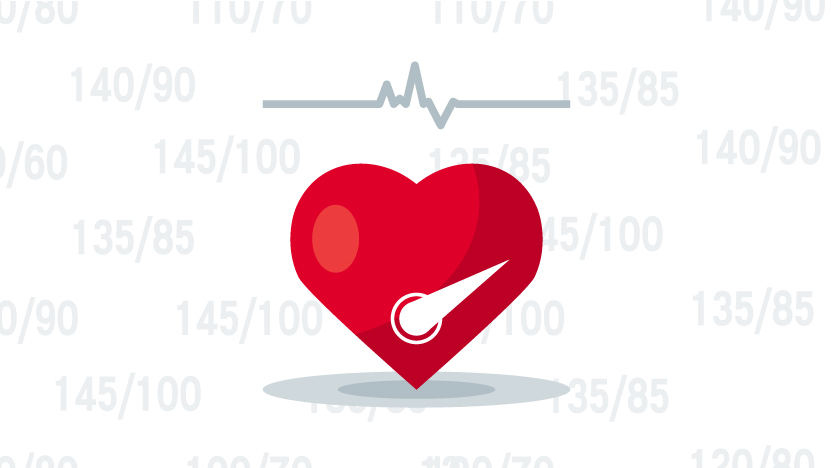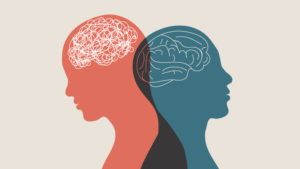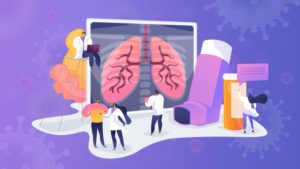Hypertension is also called high blood pressure, and it leads to serious health complications and can enhance the risk of heart disease, stroke, and sometimes death. Ideally, blood pressure is a force that our blood exerts against the walls of the blood vessels, and pressure mainly depends on the resistance of blood vessels.
Hypertension is one of the significant risk factors for cardiovascular ailments, including stroke, heart attack, heart failure, and aneurysm. It is essential to keep our blood pressure under control and also reduce the risk of dangerous situations.
Causes of Hypertension
Hypertension’s causes aren’t known, and in a plethora of cases, it is caused due to an underlying condition. Medical professionals refer to it as high blood pressure. Some of the common reasons for hypertension include:
- Environmental factors including stress and lack of exercise
- Blood plasma volume
- Hyperthyroidism, or an overactive thyroid gland
- Hyperparathyroidism, which affects calcium and phosphorous levels
- Pregnancy
- Sleep apnea
- Obesity
- Diabetes, mainly due to kidney problems and nerve damage
- Kidney ailment or disease
- Pheochromocytoma, a rare type of cancer from an adrenal gland
- Cushing syndrome is caused due to corticosteroid drugs
- Congenital adrenal hyperplasia, a kind of disorder of the cortisol-secreting adrenal glands
Risk Factors of Hypertension
Age is a prominent risk factor when it comes to hypertension. The risk tends to increase as we start aging. Men have been seen to be affected by it more up until the age of 64, whereas women are likely to suffer from high blood pressure after the age of 65. The body weight is also a risk factor. The more we weigh, the more blood our body needs to supply oxygen and nutrients to our tissues, and as the amount of blood flow through our blood vessels increases, so does the pressure on artery walls.
Also, excessive smoking and drinking can lead to hypertension cases. For example, the chemicals in tobacco tend to damage the lining of our artery walls, just like smoking or chewing tobacco instantly raises blood pressure temporarily. It can cause our arteries to narrow and increase the risk of heart disease. And over time, heavy drinking can damage our heart.
Additionally, if we are inactive, then we might have a higher heart rate. The higher our heart rate, the more complicated our heart must work with each contraction and the stronger the force on arteries which means more risk of hypertension.
There are ways to avert the high risks of hypertension. One of the basic method involves ensuring the presence of potassium in our diets. This helps in balancing the level of sodium in our cells, which in turn reduces the risk.
Effects of Hypertension
Circulatory system – The damage caused by high blood pressure starts small and builds over time. Our blood vessels and significant arteries carry blood throughout the body and supply it to vital organs and tissue. The pressure begins to damage artery walls when the pressure at which blood travels gets increased, and damage starts as small tears. When our heart becomes so weak and damaged from high blood pressure, working hard, or a previous heart attack, it leads to heart failure. Hypertension can also cause a bulge to form in a damaged artery, and it is known as an aneurysm.
Nervous system – Over time, high blood pressure may play a role in dementia, and cognitive decline as reduced blood flow to the brain causes memory and thinking problems. At times people find it quite challenging to remember or to understand things or lose focus during conversations. It is known as a stroke when a more significant blockage of blood to the brain occurs.
Skeletal system – High blood pressure can cause bone loss, which is referred to as osteoporosis, and it is the increasing amount of calcium our body gets rid of when we urinate. Women who are going through menopause are especially at risk as osteoporosis weakens our bones and makes it easier for fractures and breaks to happen.
Respiratory system – Just like the brain and heart, arteries in the lungs can be damaged and blocked, and it is known as pulmonary embolism when the artery that carries blood to our lungs gets blocked.
Urinary system – Our kidneys help remove waste from the blood, regulate blood volume and pressure, and filter waste out through urine, and to do so, we need healthy blood vessels. High blood pressure also tends to damage the larger blood vessels leading to our kidneys.
Over a while, hypertension tends to cause damage slowly, and it is essential to practice healthy habits, including regular exercise. If you are experiencing hypertension, log on to our platform, Docty and schedule a consultation with a doctor.




